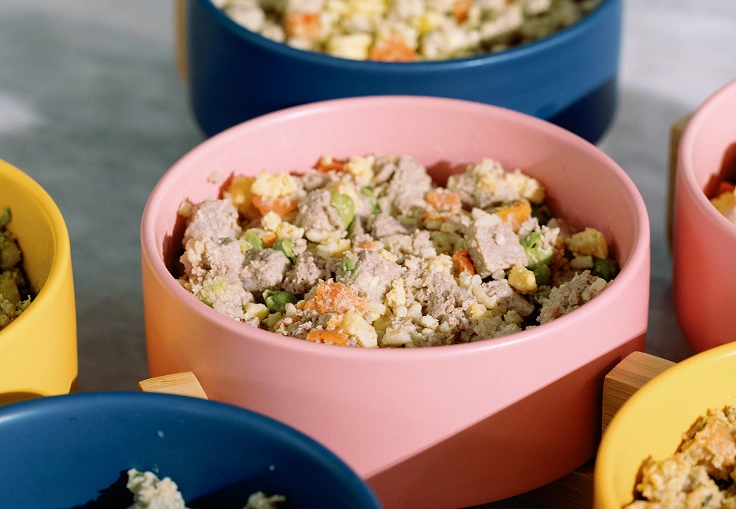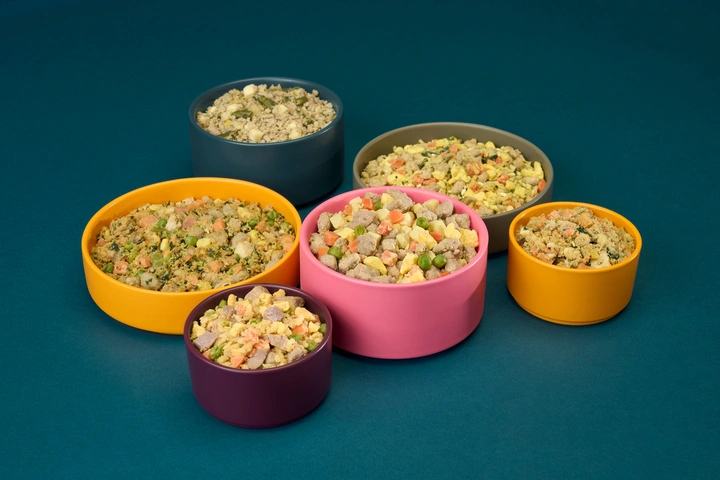Intelligent, loyal and sociable, the Golden Retriever is the quintessential family dog. They’re also a prime candidate for skin allergies, whether it’s from genetics, food intolerances or environmental factors.
Type of Coat
Because Golden Retrievers were originally bred to retrieve hunted fowl from the water, they have a double coat: a water-repellent overcoat and a thick undercoat to help protect their skin from the elements. Some Goldens have long, wavy hair while others have straight, short fur. Most have feathering around the legs, chest, tail and underbody.
The Golden Retriever’s coat requires regular grooming, so that it doesn’t become tangled or matted. Goldens usually shed heavily in the fall and spring and more moderately in the summer and winter. Because of their thick coat, it can be challenging to spot skin allergies on a Golden Retriever.
Susceptibility to Skin Allergies
Atopic dermatitis is a heritable condition that some Golden Retrievers develop as an inflammatory reaction to things like tree pollens, grasses, ragweeds, dust, mold and insects such as fleas, ticks and mosquitoes. Food intolerances can also cause skin allergies and gastrointestinal disorders in Golden Retrievers.
Common Allergy Locations
Allergic reactions on Golden Retrievers commonly take the form of significant scratching, lesions, hot spots, and dry, flaky skin around the ears, face, muzzle, chin, feet, stomach and sides.
Their eyes and ears can also become affected by skin allergies. Ears become itchy, smelly, dirty and red, and constant scratching can make a bad situation even worse. Painful secondary infections can occur in the ears if the allergies are not treated promptly.
The Connection Between Food and Skin Allergies
If you see your Golden frequently or excessively biting, scratching, rubbing or itching, a food allergy may be the cause. Self-trauma and chronic allergies can lead to yeast or bacterial infections that may take the form of lesions, seborrhea and crusting.
In many cases, the cause of food allergies in dogs is an animal protein such as chicken or beef, although some dogs also develop allergies to other sources like corn, eggs and milk. Your Golden Retriever’s reactions to a food allergy may manifest itself in areas aside from the skin; often, dogs with food allergies will also experience gastrointestinal distress.
Treatment Options
- Organic, hypoallergenic and sulfate-free shampoos can calm your dog’s inflamed, itchy and irritated skin, especially with products that include natural anti-inflammatories such as aloe vera and tree tea oil.
- Inexpensive organic and topical sprays for hot spots and minor lesions may be able to help and can be found in most pet supply stores and veterinarian’s offices.
- In hard to control cases, your veterinarian may prescribe corticosteroids and antihistamines.
- If you suspect your dog’s skin allergy is caused by a food intolerance, start by reaching out to a veterinarian or a board-certified veterinary nutritionist to help you develop an elimination diet for your furry friend: Feed your Golden Retriever a new, single-ingredient food for eight weeks. A single-ingredient diet will provide the best results. The elimination diet food should contain only single sources of animal protein, carbohydrate calories and vegetable protein. (Example: fish and potato or rabbit and peas.) For eight weeks, do not feed your Golden Retriever any treats, flavored medications, table food or supplements. These ingredients can impact the elimination diet assessment. When the eight weeks have concluded, slowly switch your Golden Retriever back to his regular food and watch for any allergies to reappear.
You may also want to try adding a probiotic to your dog’s diet. Research shows probiotics can help your dog’s body fight back against immunological attacks and allergic reactions.
How to Fight Food-Based Allergies
If your Golden Retriever has food allergies, you may want to try a fresh food diet. Unlike commercial dry kibble, fresh food diets include healthy fats like fish oil and sunflower oil and essential fatty acids such as Omega-3 and Omega-6, along with B-vitamin complexes, essential amino acids and zinc.
Here are some suggestions for managing your Golden’s food allergies:
| Condition | Dietary Needs and Adjustments |
|---|---|
| Coat Color Changes | Increase amino acids which can be found in protein (>75 grams per 1000 calories); use our calculator to convert a label percentage to the caloric basis (grams per 1000 calories) |
| Concurrent GI Signs | Avoid foods with tryptamine and histamine such as dairy or fermented vegetables and meats (yes, this includes bacon); try a simple ingredient food trial |
| Chronic Itching and Dermatitis | Fortify the diet with Vitamin E, B Vitamins, Zinc, omega-6 and the omega-3 fatty acids found in fish oil; add a probiotic; try a simple ingredient food trial |
| Dull Coat and Scaling | Adjust EPA and DHA levels in the diet (added fish oil being the most common way); try a food that has added zinc |
| Dandruff and Crustiness | Add Zinc and Vitamin A levels |
About Nom Nom
Feeding your Golden a fresh food diet may be able to help improve her allergies and alleviate her skin allergy symptoms. Nom Nom provides fresh, customizable food based on your dog’s needs.
Each batch of Nom Nom contains our special Nutrient Mix, a powerful boost of minerals and vitamins designed to keep your dog happy and healthy. Nutrient Mix offers extra immune support with magnesium, zinc and selenium, as well as Vitamin A and Vitamin E for your dog’s coat and skin health. Give Nom Nom a try to keep your Golden golden for years to come.
- Frederick, A. (2011). Food Allergies. Vet Tech, 32 (7). Retrieved from https://www.nzvna.org.nz/site/nzvna/files/Quizzes/Food%20allergies.pdf
- Universities Federation for Animal Welfare (2011). Golden Retriever: Canine Atopic
- Dermatitis. Retrieved from https://www.ufaw.org.uk/dogs/golden-retriever-canine-atopic-dermatitis
- Youn, H., Kang, H. Bhang, D., Kim, M., Hwang, C., Han, H. (2002). Allergens Causing Atopic Diseases in Canine. Department of Internal Veterinary Medicine, College of Veterinary Medicine and School of Agricultural Biotechnology, Seoul National University, Seoul. Retrieved from https://www.vetsci.org/Synapse/Data/PDFData/0118JVS/jvs-3-335.pdf
- Mauldin, E., Credille, K., Dunstan, R., Casal, M. (2008). The Clinical and Morphologic Features of Nonepidermolytic Ichthyosis in the Golden Retriever. Veterinary Pathology, 45 (2), 174 - 180. Retrieved from https://journals.sagepub.com/doi/full/10.1354/vp.45-2-174



